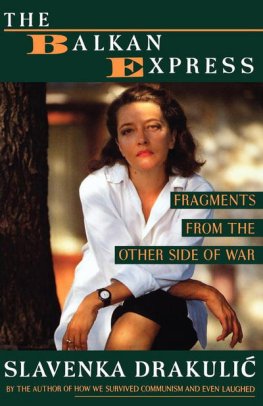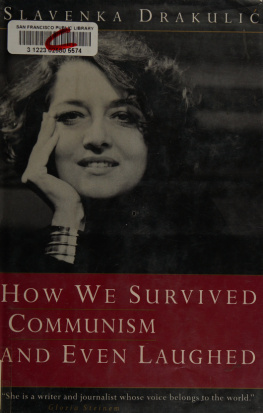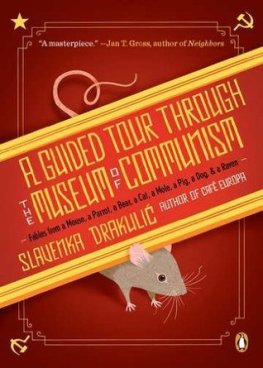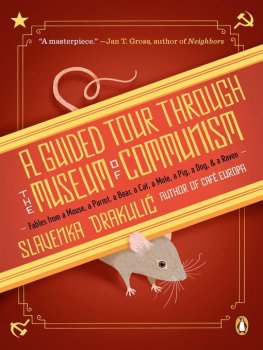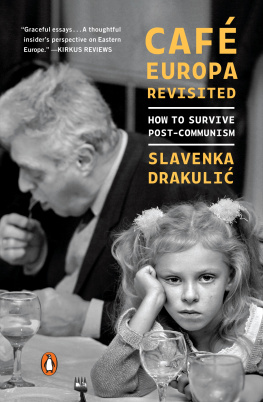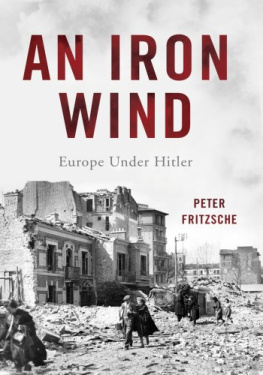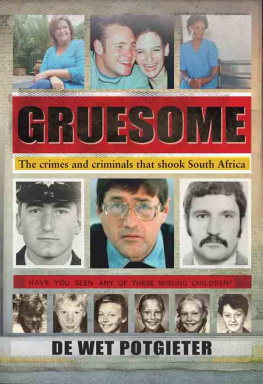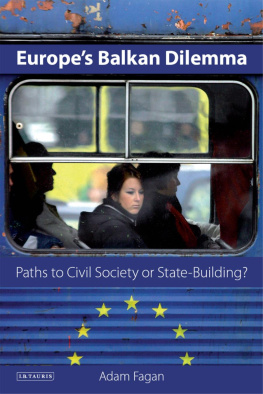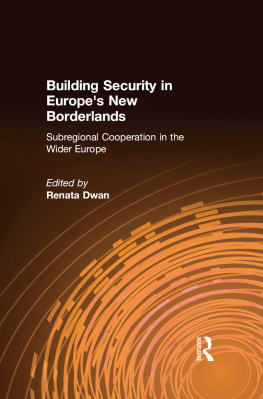Slavenka Drakulic
THE BALKAN EXPRESS
FRAGMENTS FROM THE OTHER SIDE OF WAR
He worked by the barbed wire and heard awful screams.
His field was there?
Yes, right up close. It wasnt forbidden to work there.
So he worked, he farmed there?
Yes. Where the camp is now was partly his field. It was off limits, but they heard everything.
It didnt bother him to work so near those screams?
At first it was unbearable. Then you got used to it.
Dialogue with a villager from present-day Treblinka about living close to the concentration camp at the time of extermination of the Jews (
from Shoah the Complete Text of the Film by Claude Lanzmann, Pantheon Books)

Introduction
THE OTHER SIDE OF WAR
Barely a year and a half ago I was sitting in my apartment in Zagreb, looking at CNN reports from Baghdad and thinking, God, how could those people live there? For many years Id wondered the same about Beirut. Now I am sitting in the same place watching CNN reports on Sarajevo or Slavonski Brod, but I dont ask myself that question any more. After a year of war in Croatia and Bosnia and Herzegovina, after the destruction of entire cities like Vukovar, after the shelling of Osijek and Dubrovnik, foreign friends ask me, How is it possible to live in a country at war, how do you live there? But now I understand that the answer is not simple and it doesnt come easily.
Here in Zagreb we havent suffered severe casualties. Indeed, if you were to come here today youd think that there was no war on. But that would be an illusion. The war is also here, it just affects us in a different way. At first there is a feeling of bewilderment. The war is like a monster, a mythical creature coming from somewhere far away. Somehow you refuse to believe that the creature has anything to do with your life, you try to convince yourself that everything will remain as it was, that your life will not be affected, even as you feel it closing in around you. Finally the monster grabs you by the throat. You breathe in death, it impregnates your sleep with nightmare visions of dismembered bodies, you begin to picture your own end.
As the war goes on you create a parallel reality: on one side you neurotically cling to what used to be your everyday routine, pretending normality, ignoring the war. On the other side you are unable to deny the deep changes in your life and yourself, the shift in your values, emotions, reactions and behaviour. (Can I buy shoes, does it make any sense? Am I allowed to fall in love?) In war, the way you think of your life and what is essential to it totally changes. The simplest things no longer have the same weight or meaning. That is when you really know the war is on, that it has got to you too.
I used to think that war finally reached you through fear, the terror that seizes your whole being: wild heartbeats exploding, a wave of cold sweat, when there is no longer any division between mind and body, and no help. But war is more perverse.
It doesnt stop with the realization of your victimization, it goes deeper than that. War pushes you to the painful point where you are forced to realize and acknowledge the way you participate in it, become its accomplice. It may be a seemingly ordinary situation that makes you aware that you have become a collaborator a thoughtless remark about why a refugee friend still needs high-heeled shoes, whatever.
War also heightens your awareness of the outside world. Astonishment gives way to anger, then resignation at the way Europe perceives this war ethnic conflict, ancient legacy of hatred and blood-shed. In this way the West tells us, You are not Europeans, not even Eastern Europeans. You are Balkans, mythological, wild, dangerous Balkans. Kill yourselves, if that is your pleasure. We dont understand what is going on there, nor do we have clear political interests to protect.
The myth of Europe, of our belonging to the European family and culture, even as poor relations, is gone. We have been left alone with our newly-won independence, our new states, new symbols, new autocratic leaders, but with no democracy at all. We are left standing on a soil slippery with blood, engulfed in a war that will go on for God knows how long.
After a year of violence, with the dead numbering approximately 200,000, with many more wounded and over two million refugees flooding Europe, there came the story of the concentration camps. And all of a sudden in a thin desperate man behind barbed wire the world recognized not a Moslem, but a human being. That picture, the words concentration camp and holocaust finally translated the true meaning of ethnic cleansing. At last people in the West began to grasp what was going on. It was suddenly clear that Europe hadnt learnt its lesson, that, history always repeats itself and that someone is always a Jew. Once the concept of otherness takes root, the unimaginable becomes possible. Not in some mythological country but to ordinary urban citizens, as I discovered all too painfully.
Finally, a few of words about this book. This is not the book about the war as we see it every day on our television screens or read about it in the newspapers. Balkan Express picks up where the news stops, it fits somewhere in between hard facts and analysis and personal stories, because the war is happening not only at the front, but everywhere and to us all. I am speaking about the other, less visible side of war, the way it changes us slowly from within. If my short half-stories, half-essays are to convey anything to the reader, it is this: the change in values, in ones way of thinking, ones perception of the world, that occurs on the inner side of war a change that overtakes the inner self until one can scarcely recognize oneself any longer.
Unable as I was to separate myself from this war, the reader will undoubtedly notice inconsistencies in my own views, opinions and emotions. I dont apologize for that, because this is precisely what I wanted to write about. I offer only one piece of background information: the stories were written between April 1991 and May 1992, and are presented in more or less chronological order. They started as a few irregular contributions to various magazines and newspapers (The Nation, New Statesman and Society, Die Zeit, Time), but as the war came closer the urge to write about it and nothing else grew stronger and stronger. I ended up writing a book because, in spite of everything, I still believe in the power of words, in the necessity of communication. This is the only thing I know I believe in now.
ZAGREBJUNE 1992
1
DINNER AT THE HARVARD CLUB
Im going home, I think as the plane takes off above the Atlantic and, hovering for a brief moment above the slanted picture of Manhattan, dives upwards into the fluffy milky-white clouds. The sky above the clouds is crystal blue and so calm it seems almost indifferent. It would be wonderful to stay up there and coast awhile in the cool expanse of the azure void. I have just lost my link with land, the land beneath me and my own land to which I am about to return.
Only ten days have passed since I left. In these ten days another twelve people have been killed. The accumulating deaths make the wall dividing us from Europe and the world even higher and more formidable, placing us not only on the other side of the border but on the other side of reason too. This is why going back to my country is it still called Yugoslavia? this time feels different, more difficult than ever before: the word home sticks in my throat, as if I would choke on it if I tried to say it out loud. I know that Im going to be plunged deep into a black soupy tar, turgid and clammy, into the everyday which nobody understands any more. Already it is tugging at me from afar with long, thin tentacles.

